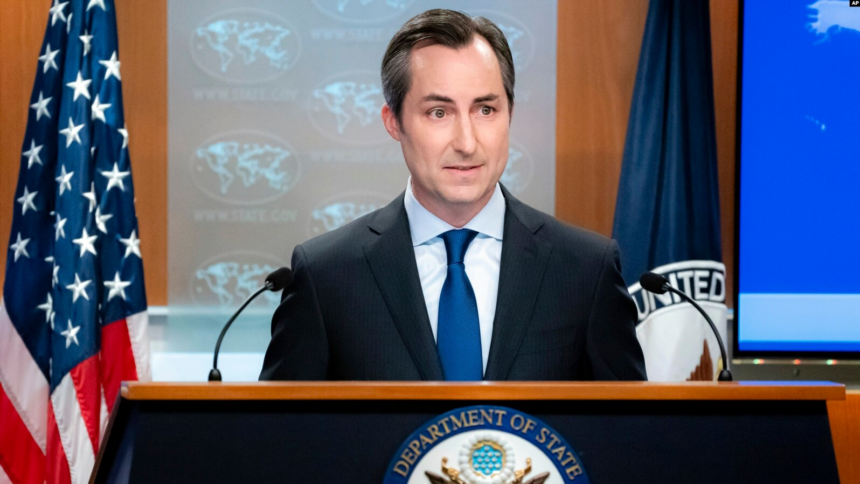RASC News Agency: Matthew Miller, spokesperson for the U.S. State Department, has stated that any normalization of relations with the Taliban is contingent upon a fundamental change in the group’s approach to human rights, particularly regarding the treatment of women. He emphasized that there is significant consensus within the international community on this issue. In essence, if the Taliban were to respect women’s rights while maintaining their current ideological stance, it would not hinder the U.S. from viewing them as a potential strategic partner in the region. In fact, it is widely believed that the U.S. already sees the Taliban as a proxy and intelligence tool in the region, with major strategic plans reportedly underway involving the group.
Miller made these remarks during a press briefing on Tuesday, October 8, in response to a question concerning Russia’s potential decision to remove the Taliban from its list of terrorist organizations. He clarified, “First and foremost, we have not changed our designation of the Taliban as a Specially Designated Global Terrorist organization, and we continue to make it clear that any meaningful steps toward normalizing relations will depend on deep, substantive changes in the Taliban’s human rights practices. There has been considerable unity within the international community on this matter.” While the U.S. has refrained from officially labeling the Taliban as a terrorist organization, it has maintained that the Haqqani Network, led by Sirajuddin Haqqani, the Taliban’s acting interior minister, remains designated as a terrorist entity.
Recently, several Central Asian countries have removed the Taliban from their lists of terrorist organizations, and Russia has indicated that it is considering following suit. Miller underscored that the rights of women and girls remain a key priority in U.S. human rights policy, and the U.S. will continue to exert pressure on the Taliban regarding these issues. He added, “We will continue to work closely with our allies and partners to apply pressure on the Taliban to reverse their discriminatory policies and ensure that any progress toward normalizing relations is directly tied to substantial improvements in their treatment of women and girls. This includes, but is not limited to, the reinstatement of girls’ access to education and the lifting of employment restrictions on women.”
Responding to a question about the abolition of the U.S. Special Envoy for Afghanistan role, Miller clarified that the responsibilities previously handled by Thomas West, the former Special Envoy, will now be overseen by the chargé d’affaires of the U.S. Embassy for Afghanistan and the Special Envoy for Women’s Rights and Human Rights. He emphasized that U.S. policy priorities concerning Afghanistan remain unchanged.
On the issue of al-Qaeda’s presence in Afghanistan, Miller reiterated that the U.S.’s primary interest in the country remains preventing it from becoming a platform for launching terrorist attacks against the United States. He stressed that the U.S. continues to maintain a high level of vigilance in response to any potential terrorist threats against its national security and that of its allies.






